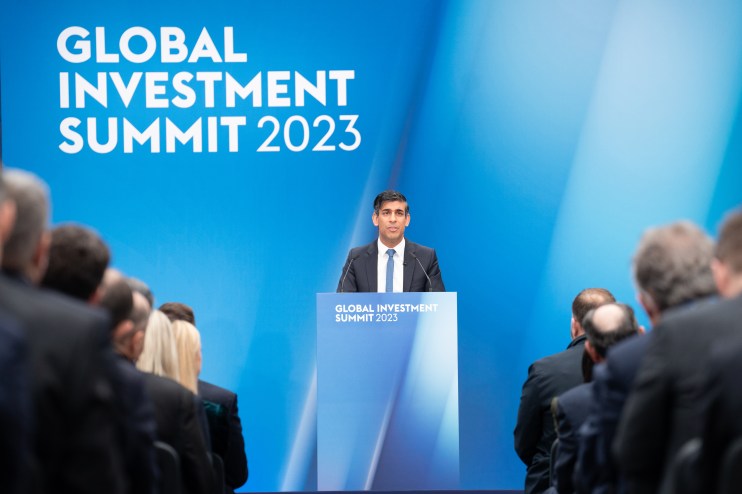London’s firms are still being held back by the EU – and ourselves

London was privileged to host the Global Investors Summit this week, with the drivers of capital investment around the globe, all centred in our capital. While it was an honour for us to host this conference, I had even more pleasure leading an innovation roundtable, hosted by the Adam Smith Institute.
You might wonder why I attach such importance to an event that would seem par for course in Westminster. But we are quick to forget just how much of society today is underlined by the innovation of our predecessors. The new ideas, methods and technologies which have solved problems and boosted our standards of living, have defined our world.
Britain has been the home of many of the great entrepreneurs and inventors from Isaac Newton’s telescope to the development of Carbon Fibre, from the creation of the World Wide Web to the fastest roll-out of the Covid-19 vaccine.
But Britain’s successes are not the result of mere chance. They are a direct consequence of the British framework; our common law system and our rigorous protection of intellectual property. Over the centuries our approach to innovation has tended to be permissionless, meaning that our entrepreneurs can experiment as they wish with new technologies and business models, and intervention only occurs when there is a demonstrable risk to the public. After all, Thomas Savery did not have to ask the authorities’ permission to create the first steam engine.
Today, technology is developing at such a pace that many are terming the age in which we are living the fourth industrial revolution. To put into perspective just how much the first industrial revolution improved the lives of Britons, incomes have increased threefold in real terms since 1760, and life expectancy has rocketed from 35 to 82. Think how much greater a leap forward in addressing poverty, healthcare, transport and environmental concerns we could take with these tools at our disposal.
But sadly, this prospect is under attack. The EU is seeking to meddle in the affairs of businesses – from dictating what charging point phones must have, to rushing to impose stifling regulations on AI.
It was encouraging to see the Prime Minister take a far more balanced approach at the recent AI summit, nonetheless this regulatory mission creep has extended into Britain. Regulators have cut out small businesses from public procurement contracts by creating an expensive and unworkable system based on nebulous social, rather than economic, value. Public health is teetering on the edge of going backwards. And the creation of a new Digital Markets Unit, which will be able to intervene, at will, in product roll-outs or improvements made by firms with digital capabilities, is a further symptom of this hostility towards business-led improvements. Meanwhile, our antediluvian planning system has made it almost impossible to build new energy sources, lab spaces and homes.
This is why I am asking parliamentarians to sign the Innovation Declaration which has a simple aim:
to encourage both current and prospective MPs to stand up for enterprising Britain.
Signatories will be pledging to support the removal of regulatory barriers faced by our entrepreneurs. It will help realise our ambitions to make Britain a technological superpower a reality, and stand up for Britain’s economy, entrepreneurs and workers on the world stage.
Sir Graham Brady is a Conservative MP and chair of the 1922 Committee